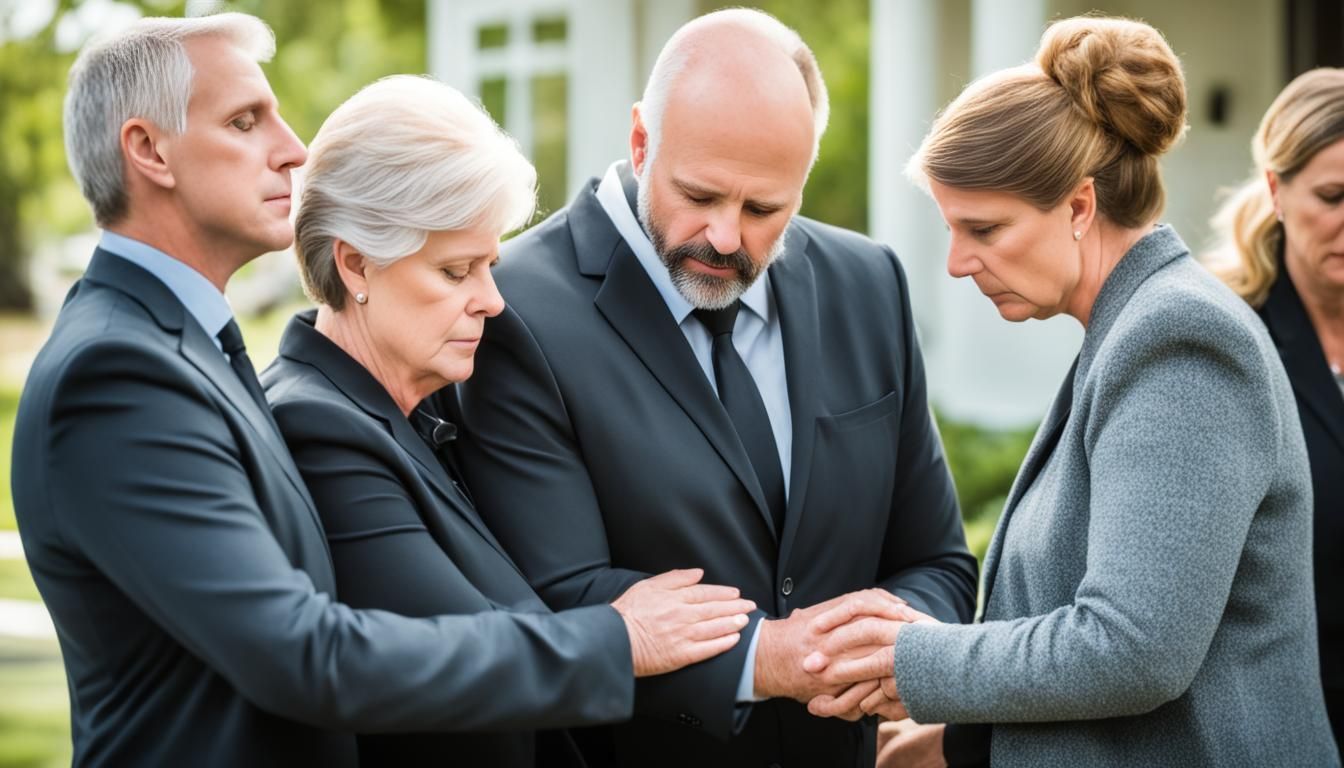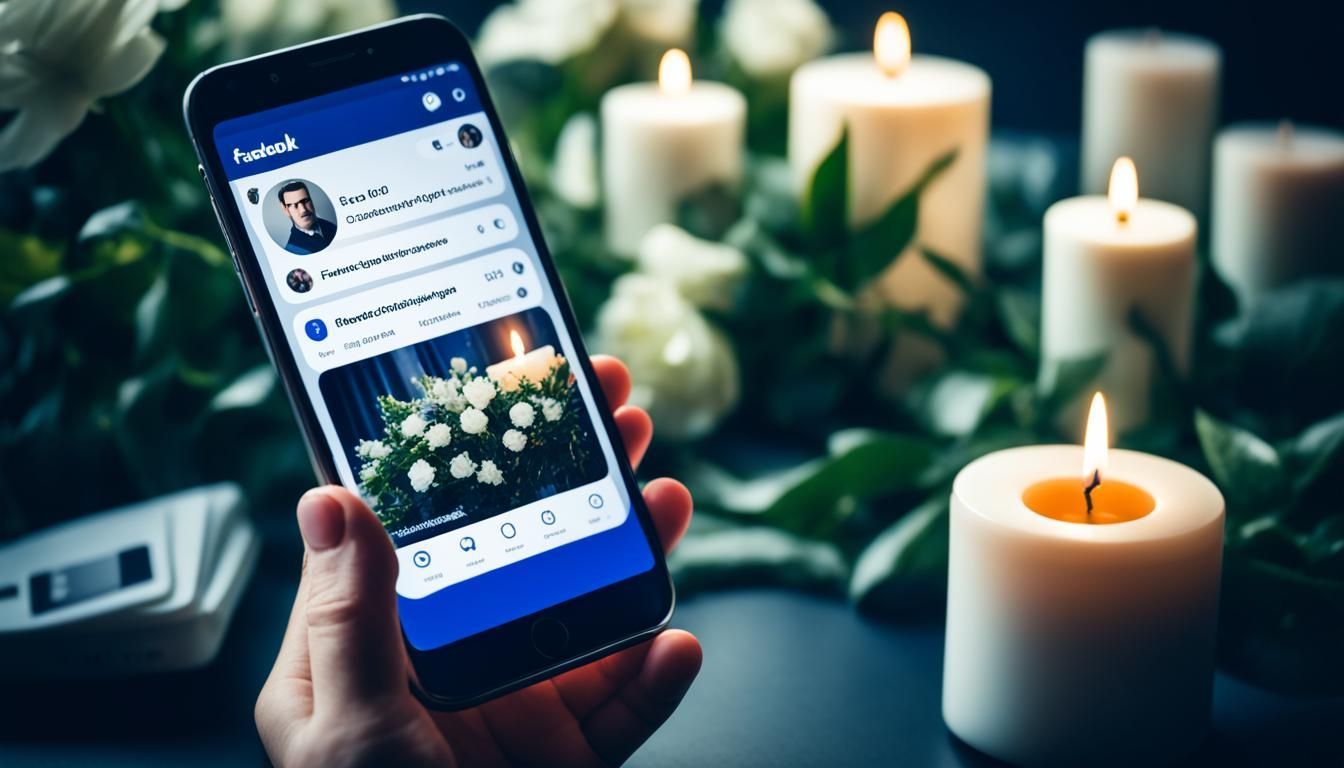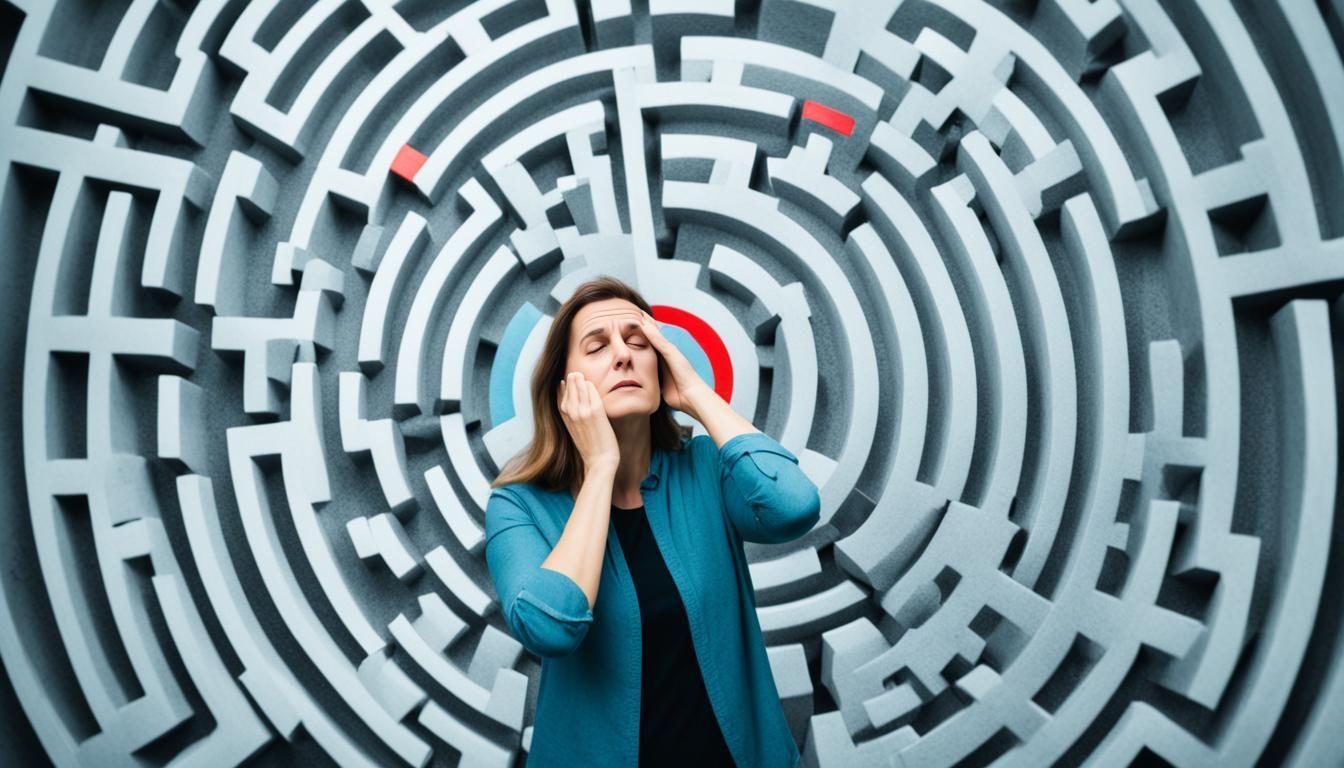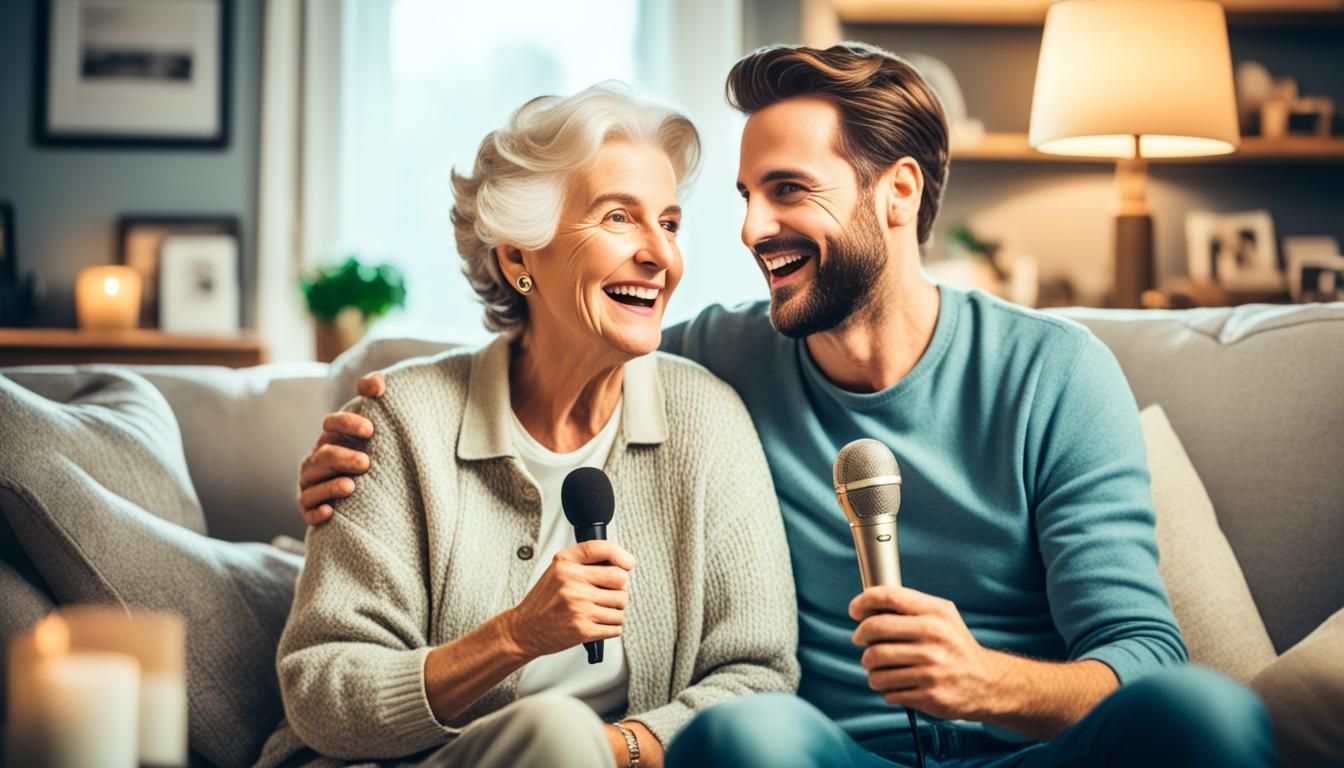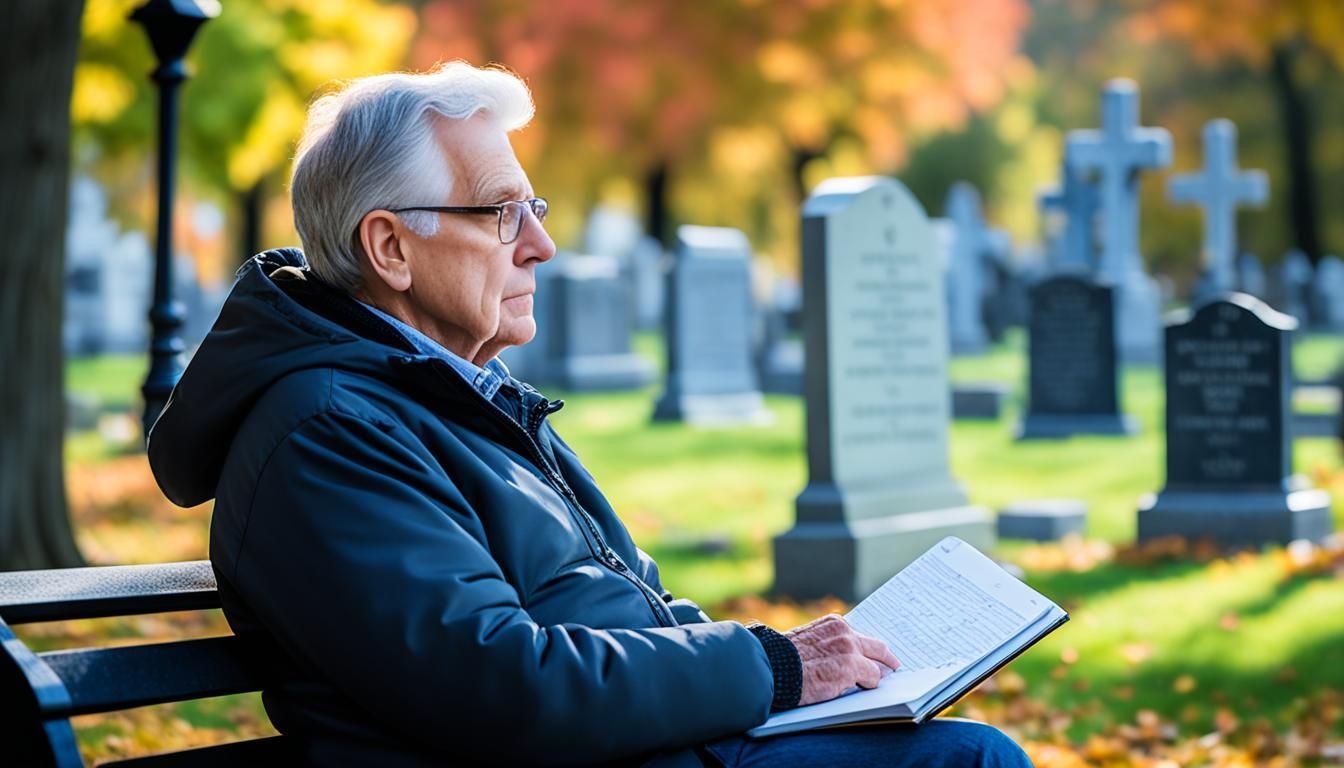Coping with Post-Holiday Blues After Loss
Coping with Post-Holiday Blues After Loss
After the holidays, many feel a quiet stillness, a big change from the past celebrations. This quiet time makes the absence of a loved one feel even bigger. The turning of the calendar's page reminds us of our loss. Edwards Funeral Service understands this hard time. They offer help for those grieving, guiding them towards healing.
Looking at the leftovers of past gatherings can be hard. People deal with sadness, feeling alone, and lacking the will to do things. Coping methods are important now. They let us feel the pain but also move us forward. You're not alone in this. Support groups and resources from places like Edwards Funeral Service can make a big difference.
Grief is both personal and something everyone understands, especially after the holidays. Remembering every song and tradition can bring back memories. But accepting these feelings is part of being human. This acceptance helps us deal with the sadness after the holidays. Facing each day takes courage. With support and kindness, we can get through this together.
Key Takeaways
- Recognizing the impact of post-holiday blues after the loss of a loved one is the first step to emotional healing.
- Finding support through community engagement can help manage feelings of loneliness and despair.
- Edwards Funeral Service provides grief support resources to aid individuals through the tough post-holiday period.
- Acknowledging the wide spectrum of emotions experienced after loss can facilitate better coping strategies .
- Self-care and proactive measures are essential in moving forward while honoring the memories of those we’ve lost.
Understanding the Post-Holiday Blues Phenomenon
After the holidays, we slide back into our normal lives. This can lead to post-holiday blues. It's harder for those dealing with a loss. The colder days and end of festivities make us feel sadder and remind us of what's missing.
The Science Behind Post-Holiday Sadness
Psychology experts say post-holiday blues come from less socializing and unrealized hopes. The holidays boost our happiness chemicals because of all the festivities. But, in January, this drops sharply. For those mourning someone, this period is even tougher. It shows why having support for grief is key now.
Identifying Symptoms and Triggers
The signs of post-holiday blues include feeling sad, tired, and cranky. They spring from the shift from holiday fun to regular life. Especially after the season from Thanksgiving to New Year's, we might feel nostalgic and miss what was. This makes the post-holiday blues after losing a loved one harder to bear.
| Common Symptoms | Possible Triggers | Duration of Symptoms |
|---|---|---|
| Sadness and tearfulness | End of holiday celebrations | Varies, often several weeks |
| Fatigue and lack of energy | Return to work or routine | Up to a month |
| Irritability and anxiety | Anniversary reactions (date of the loss) | Can last months, seeking professional help for grief is recommended |
The Overlap with Seasonal Affective Disorder
Winter raises the chance of Seasonal Affective Disorder (SAD). SAD comes from shorter days and less time outside. Its symptoms look a lot like symptoms of post-holiday blues, including trouble sleeping and less drive, which may be mistaken for grief.
If you're feeling these symptoms, it's vital to know if it's SAD or sadness from a loss. In some cases, professional help for grief if the conditions persist might be needed.
Post-Holiday Blues After Losing Loved One
Handling loss during the holidays is hard for those who've recently lost someone. This season's usual happiness and celebrations make sadness and loneliness feel stronger. Edwards Funeral Service offers grief support resources to help. They provide comfort and ways to honor the person who has died.
Healing emotionally means acknowledging the hurt. It also means finding ways to remember the person who's gone. At Edwards Funeral Service, you can sign up for obituary email alerts. You can also send sympathy flowers, plant trees in memory, or send out memorial cards. These steps can help release emotions and keep the memory of loved ones alive during hard times.
| Service | Description | Impact on Grieving Process |
|---|---|---|
| Email Alerts for Obituaries | Receive notifications of obituary postings. | Keeps you connected with the community and memorial events. |
| Sympathy Flowers | Send flowers to express condolences. | Offers a visible token of sympathy and support. |
| Memorial Tree Planting | Plant a tree in memory of the deceased. | Creates a living tribute, providing long-term comfort. |
| Memorial Cards | Send cards to remember the loved one. | Personalized gesture that can be shared with others. |
Moving towards normalcy with loss needs time and a supportive community. Edwards Funeral Service provides this support to those dealing with loss during the holidays. They make sure no one has to endure grief alone. Using these grief support resources , people can find comfort. They can start healing even in the toughest times.
Strategies for Coping and Finding Joy Again
Finding ways to handle the sadness after holidays can be hard, especially if we've lost someone close. Taking part in positive activities can help beat feelings of loneliness and sadness. Important things like exercising and eating right are also key for emotional strength.
Joining support groups for bereaved individuals can be really helpful. They provide a place to share feelings and get advice that works. You're not alone, and these groups prove it by offering support and proven coping methods.
Getting enough sleep and taking care of yourself are ways to help get life back to normal and heal emotionally. Trying mindfulness, yoga, or creative activities like painting or writing can be really powerful. They help us work through our grief and find happiness again.
| Activity | Benefits |
|---|---|
| Physical Exercise | Improves mood, reduces anxiety |
| Nutritious Diet | Enhances physical health, stabilizes mood fluctuations |
| Support Groups | Offers emotional support, decreases feelings of isolation |
| Mindful Practices | Increases present-moment awareness, reduces stress |
| Creative Undertakings | Facilitates emotional expression, fosters a sense of achievement |
Using these steps can help you move past sadness and find joy again. You can find new purpose and happiness by doing things you love or being with others who understand. Every step forward is a step toward healing and joy.
Conclusion
As holiday lights go out and joyous sounds fade, people find themselves dealing with mixed feelings. Those mourning the loss of a loved one feel this more deeply. Edwards Funeral Service deeply understands these feelings. They promise to offer support during these hard times. With many grief support resources , they help people not feel alone in their sorrow.
Dealing with sadness after the holidays requires understanding and patience. Knowing this sadness will pass can bring hope. To find peace, combining strong coping strategies with a supportive network is crucial. It's in this support that we often find comfort.
Emotional healing is a very personal journey. Yet, it's important to seek help if sadness stops you from living your life. Edwards Funeral Service is there to offer kindness and expert support. They believe in the power of renewal, both in nature and within us.
FAQ
What are post-holiday blues after losing a loved one?
After losing someone close, many people feel sad and lonely when holidays end. This is called post-holiday blues. The joy of the festive season makes going back to normal routines harder. This contrast can deepen the feelings of sadness and loss.
What are some common coping strategies for emotional healing after losing a loved one?
To cope, you can try several strategies. Exercise regularly and eat well. Also, connect with others and join support groups. Make sure you get enough sleep, and practice mindfulness. It's okay to seek professional help if you're struggling.
How does science explain post-holiday sadness?
Science says this sadness comes from a drop in excitement and activity. This affects how we feel by reducing happy chemicals like dopamine. It makes us feel down, and it's harder if we are grieving.
What are the symptoms and triggers of post-holiday blues?
Symptoms include feeling sad or tired, getting irritated easily, and not feeling satisfied. The excitement of holidays ending and returning to routine can trigger these feelings. Reminders of past times with the deceased loved one can also be a trigger.
What is the connection between post-holiday blues and Seasonal Affective Disorder?
Post-holiday blues and Seasonal Affective Disorder (SAD) share symptoms like less energy and sleep changes. They both happen in winter. But they are different, and it is crucial to treat them rightly, especially when they seriously affect our lives.
How can support groups help those dealing with loss during the holidays?
In support groups, you can talk with others who understand your loss. They offer comfort, share ways to cope, and help you feel less alone. Finding this community can be a big part of healing.
When should one seek professional help for grief and post-holiday blues?
Seek help if your grief or blues don't get better, affect your life, or make you think of harming yourself. A mental health professional can offer the support and care you need during this hard time.
What are some ways to honor the memory of a deceased loved one during post-holiday times?
To honor your loved one, consider planting a tree or holding a memorial service. Create a photo album or a memory box. Keep up traditions that were special to them. This helps remember and celebrate their life and your time together.
Is it normal to feel a renewed sense of grief after the holidays?
Yes, it's normal to feel stronger grief after the holidays, especially the first year without them. Holidays can remind you of shared moments, triggering sadness. Recognizing these feelings as part of your grieving process is important.




